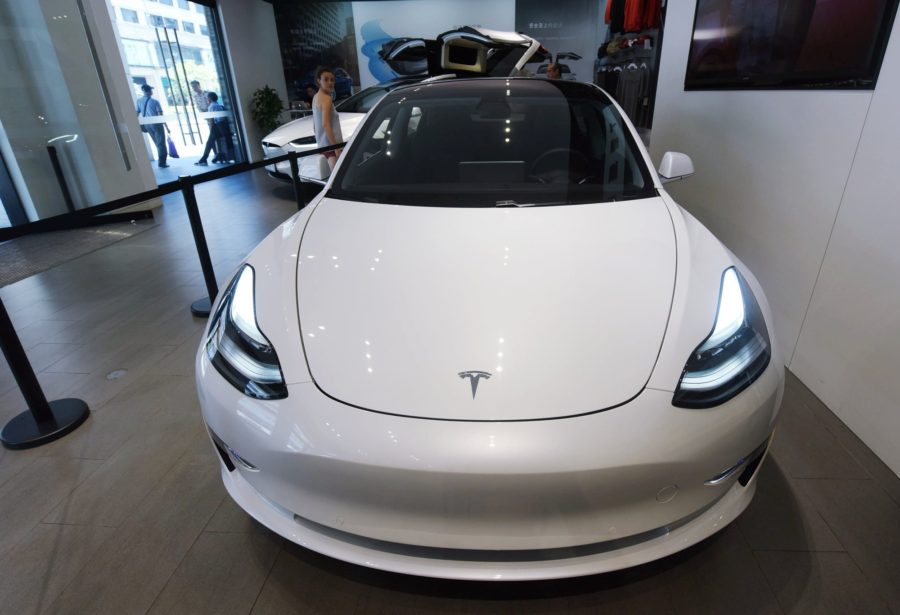Is Tesla’s shrinking the range of its Model 3?
In fact, Tesla is now working on a new 110 kWh battery pack, which would be its largest ever. This would bring some of its electric vehicles to 400 miles (644 km) on a single charge.
Simply put, the reason why you buy a Tesla is because of its speed and range. It leaves the competition in the dust.

So, you can imagine my surprise when I read this morning that Tesla plans to manufacture shorter range versions of its Model 3 in China.
Why on earth would they do this? China is huge. The country has the largest high-speed rail network in the world for a good reason: it needs to keep its vast territory, economically integrated because it is modern developing country.
Surely range is what Tesla needs in China to sell itself. This is one of its strongest comparative advantages it has over the competition globally. So, what’s going on?
Well they are not exactly trying to sell shorter range Model 3s to the Chinese. They are juts changing the battery technology. And in many ways this is a smart idea and makes a lot of business sense.
Tesla is switching from LFP batteries in its Model 3 in China
It’s all about battery chemistry and striking the right kind of chemistry with Chinese buyers, which is what Tesla is trying to do.
The US version of the Tesla Model 3 uses nickel-cobalt-aluminium batteries, otherwise known as NCA. The Chinese version of this car, it seems will instead use lithium-iron-phosphate (LFP) batteries. We know this because China’s top battery manufacture just announced that it will supply Tesla with these batteries at its newly built $2 billion factory outside Shanghai.
The difference between these two battery technologies is very simple: it’s to do with range and price.
LFP batteries are a lot cheaper to manufacture than NCA batteries, but they have lower energy density. This means that the Tesla’s these will power will have less range.
Why has Tesla decided to switch to LFP batteries in China
Tesla appears to be trying to bolster their margins in China, which is the world’s largest car market. But apart from saving money, there is another very good reason why Tesla has chosen this route. China’s entire bus fleet are powered by LFP batteries. So, this is a technology that China understands, which makes it therefore, an easier “sell”.
The other important difference is market demand. In most small Chinese cities, cars are used as short-range run-about vehicles. They are not usually used to make long road trips because China is so vast. It’s much more practical instead to fly or use the train in China. Therefore, the average Chinese car buyer doesn’t have the same range anxiety as we do in Europe.
I think this is a clever move by Tesla. Not only will they save money, but they will meet the demands of the local Chinese market comfortably. Despite losing range, they can still defend and grow their market share.

What does that mean for the battery metal market?
The change in battery chemistry from NCA to LFP will mean that there will be less demand from its China plant for cobalt. This is a key ingredient in NCA batteries but not for LFP batteries.
However, it’s worth noting that this might not matter for the cobalt industry. Tesla has ambitious plans to promote its battery home storage solution called Powerwall. This is a home energy storage solution that allows homes to have an abundant supply of renewable energy at any time of the day.
Some people are calling this Tesla’s iPhone moment. It’s a part of the market that doesn’t really exist. If Tesla succeeds, it will take most the market share with very little competition. More importantly though, this technology uses Tesla’s NCA battery technology — the same battery type that powers my Model S.
Tesla might therefore, start increasing its demand for Cobalt in the future, even if Elon Musk argue otherwise.
Tesla’s NCA technology remains its comparative advantage in many markets where range and longevity of its cars, remain powerful competitive differentiators.

Tesla is just diversifying it technology
What we have seen from Tesla is more of a commitment to use a wide variety of battery technologies over an even greater range of applications. Overall, Tesla is likely to need every conceivable type of battery metal, as it expands its business and enters new markets.










